OFF-TOPIC (23)
By:
October 29, 2020
Off-Topic brings you over-the-transom, on-tangent essays, dialogues and subjective scholarship on an occasional, impulsive basis. This time, an encrypted communion with a leading seer of screen, script, sound and sketch about where we’re going, and if we’re really here…
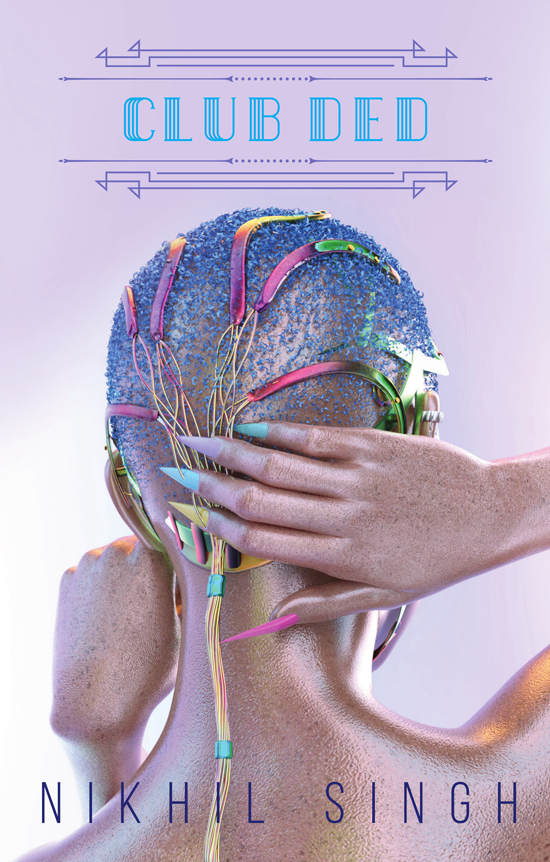
If believing is seeing, then humans’ natural habitat is mirage. We crossed the planet chasing visions, and now the monuments to our migration shimmer as we collectively try to maintain the illusion. We see each other’s ghosts on zoom, and commit our culture to outsize cinematic myth.
Nikhil Singh reports from where the strata of fantasy have collected most deeply. South Africa, the edge of the populated world, where oceans meet and the currents of blood, capital, end times and blazing futures crash together, is the site of his speculative present and subtextual histories, most newly coalesced as the novel Club Ded.
Dreams are being fabricated and existence fictionalized in a current-day Cape Town sliding into tomorrow and dragging myriad subjective pasts behind it. Up in the shining city stage-set, American multiplex idol Brick Bryson is re-creating the serious superhero saga that raised him to movie monarchy two decades before; in the sprawling squalor of an agrarian squat in an abandoned military base, philosophical dropout Ziq and political refugee Fortunato scrounge a living and pursue covert creative practices; higher even than Brick’s manufactured reality, Jennifer, salaried acolyte of messianic self-help mogul The Oracle, decodes reality and sells redemption; down an elegant alleyway mansion Volker and Sulette, two artifacts of the Apartheid era, play out a daily simulation of imagined gentility with a murderous undercurrent; nearly everyone shifts beyond and back to the conscious world on an organic hallucinogen locally farmed; and each life is intersected by Trill, the mystifying mercurial soul of the place, who suffers everything and survives all. Subterranean in several senses to the entire story is a much more sinister — though numbly, enterprisingly amoral — venture that shares names with Brick’s movie, “Club Ded,” but no trace of his well-intentioned (and more conventionally compromised) endeavor.
Across two sides of midnight, Singh and I linked hemispheres to dive into and drift around the novel’s intricacies and implications…
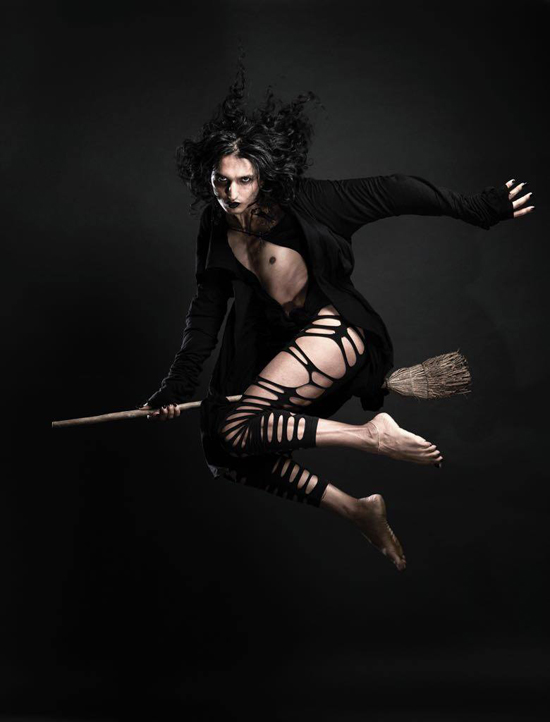
HILOBROW: Time has gone off-register, with our focus continually adjusting between the current moment and a fast-forwarding future. I wondered how you subjectively experience time because there is this switch… a lot of switches between past and present tense, sometimes even from sentence to sentence, in the book. I get this feeling of there being a tidal motion back and forth, a minute into the future and a minute back into the past.
SINGH: It was intentional, but it was a complex decision. First a little background story: I’ve been writing for quite a long time, so I’ve done a lot of experiments with form. I actually wrote my first book when I was nine [laughs]; I was obsessed with writing these typically science-fiction books then. But I started getting into properly writing in my teens. And I experimented with present tense at that time, because I feel like it can communicate disturbing things, and a sort of “futuristic” sensibility, when a narrative is located in the present moment. The natural instinct is to write in the past tense — which I find works nicely when you’re doing more complex stylizations of reality, when you’re actually looking objectively at something. But if you want that feeling of immediacy… and I wanted a futuristic — not futuristic in terms of science fiction, but futuristic in terms of, you’re standing at the cusp of the future right now. I didn’t really know how to do that in the beginning stages of the book. But I wanted to film parts of the book before they were the book, to get inside the narrative from an observer’s perspective. So, I started experimenting with writing screenplays, and then expanding them into prose. And also filming them before expanding them, so that I could capture all these weird textures and details, like the light on the bedroom wall, emotive undercurrents or whatever — but from an experiential foundation. So, I ended up filming parts. Then, I noticed that the screenplay was just naturally written in present tense. So I was like, maybe I can incorporate that. I wanted to get that feeling of the movement back and forth through time with tense shifts, but in a subtle way. It can be confusing sometimes, but I thought a lot about it before putting it into action.
HILOBROW: It seemed very natural to me! It’s almost like there’s nothing but this now-ness, and the past tense appears like this stroboscopic trail behind somebody from the past few minutes.
SINGH: [Laughs] That’s good, that kind of dissociative effect, I like that. I strive for that.
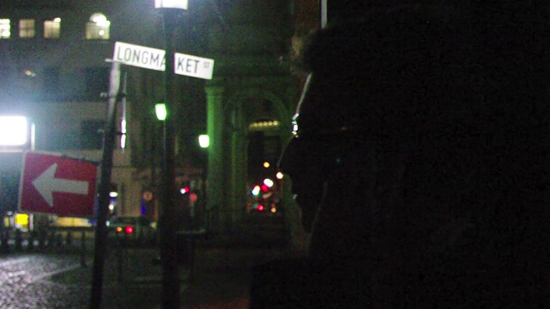
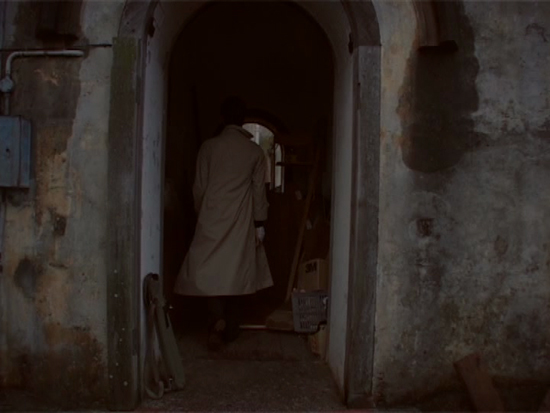
HILOBROW: Another reference point for me in your prose style was Chris Marker — I’m amazed at how the expansiveness of your ideas accompanies a clipped sentence structure and length; as in a film like Marker’s La Jetée, it’s like each thought is the width of a single frame of the movie of your life. It also has some roots in the hardboiled fiction canon. Do these thoughts come to you telegraphically? Like, one sketch after another?
SINGH: I started working on this book in 2001. So I had this idea of a book that was sort of four-dimensional. Where you had cascading threadlines that intersected at odd points. But I couldn’t properly envisage the way that that had to be done in reality, so I had to hack my brain a little bit. For example, most of the portions with Ziq and Jennifer are very internal, so I wrote them as prose without a screenplay foundation — then juxtaposed these sections with post-screenplay variants. So, the narrative already had this dissonant clash within myself. Then I chopped those up further and tried to find the contact points between, so I could thread narrative strands into one another. In my debut book, Taty Went West, I tried the opposite; I wanted to do a science fiction book but in a Victorian style of writing [smiles] — real people and situations in an unreal setting. So, I took these very long, complex Old English sentence structures… more of a rambling post-Victorian 1920s style… and received equal measures of praise and criticism for that stylistic choice in juxtaposition with the material. I thought the concepts in Club Ded were quite complicated, so I thought the only way to style it, would be to kind of do a Don DeLillo thing, and make the sentences move like certain forms of Japanese poetry — impressions and images that all sort of cluster together and coagulate into the larger concepts, so that a reader is not hung up on things. They just breeze through a visual inventory that slowly gathers weight while reading. So it was a bit of an experiment, but I took a long time getting it to the point where I felt it was right.

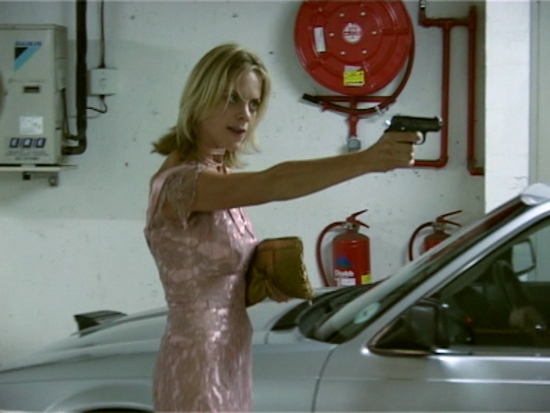
HILOBROW: Like everything in your prose writing, the way you just described that is highly visual. The metaphorical porousness between the senses is very pronounced in this book. And to a certain extent you engineered a disjunction, but a harmonious one, between what started as film and what started as prose… you’re equally adept as a musician and a visual artist; do you plan, or just follow an intuition, as to what artwork is meant for which medium?
SINGH: I think that the only things that are worth doing, are things that come out of dreams or intuition. I think the mind operates best as a kind of interface between your various bodies; your material body, your dreaming or astral body, etc. True visions come from outside, from the unknown. So I find that if I involve my mind too much in the inception, my mental processes start to colonize the form. I see this as a trap. I feel writers should, at best, strive for things that lie beyond the mind. But at the same time, you need to utilize the mind to best advantage; otherwise the work often becomes this abstract dreamlike regurgitation of visions. I appreciate that sort of thing at times, I like Burroughs, De Quincey etc., but it’s not conducive to my idiosyncratic method of delivery, which I feel weaves along the borderline. So I’m constantly trying to hack myself — or, rather hack the border, to make crossings back and forth, whilst maintaining a coherent flight path.
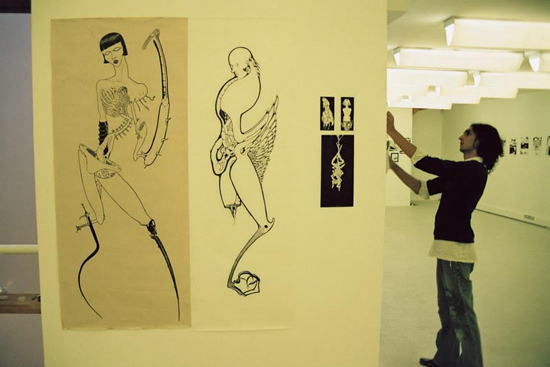
That was actually the primary point of doing these films; I figured I have a structure, but how I envisage this structure might be completely different to how it would happen in reality. I found people who suited certain characters, or cultured characters around the actions of others — particularly Lise Slabber, whose improvisations within a set framework were highly illuminating. My method was to form environments and position certain people in them. I either wrote dialogue, or created improvisational situations which generated their own dialogue. Then used talented technical people, like Justin Allart, Johan Horjus or Hein Coetzee to film it. I would then edit, fit music and discover previously hidden narrative harmonies and undercurrents, which I could explore and expand in writing. And in doing so, I unearthed all of these other intuitive triggers my mind would never have been able to achieve alone. So, I was able to marry the intuition with the concept, and create a hybrid that became the basis for the completed prose. But I thought if I do that the whole way through it’s going to degenerate into a formulaic process, so I had to reverse the polarity with some of the other parts, like the Brick sections — which are breezier and less immediate, as they are wholly perceived through his POV. This way, the variants would complement each other and the reader wouldn’t be overwhelmed by a single method of delivery. I needed this juxtaposition, but it had to be a comfortable one, so that the reader wouldn’t really notice shifts. They would appear natural.

HILOBROW: It is beautifully paced. Now that I think of it, the more introspective and more material sections are like a well-sequenced music album.
SINGH: The process is very musical — like designing a score. But it also had to mirror the concept, and not get lost in technicalities. Because the whole book for me is about outsiders and insiders. This one’s inside society, or this one’s outside society, and the points where they meet become the focus of the narrative. So I thought the delivery method had to mirror that subconsciously.
HILOBROW: It felt masterful, the way the book switches currents like that.
SINGH: I’m glad you say that, because honestly it wasn’t a natural thing; it took me a long time to get it right!
HILOBROW: You’re acclimating yourself to a new world as well; one that you created, but don’t necessarily recognize.
SINGH: Exactly, it’s very surreal! [laughs]
HILOBROW: When you talked about not involving the mind too much at the beginning, it occurred to me that you’re not determining the narrative, you’re navigating it. It’s kind of a parallel for a lot of characters in the book… like Ziq’s intuitive wanderings. And when he occasionally glimpses this silent procession through the woods, it seems like a pilgrimage without a holy land, as if the motion itself is the meaning.
SINGH: Yes, that’s for me, the core of that existential awareness you get when you’re in the middle of a wilderness. Have you read that Camus story “The Renegade”? It speaks a lot about this clash between a “civilized” person going into the desert and locating an alien culture, but it’s more this Castaneda-type experience, where it’s just you and the wilderness of reality. You can’t really go beyond that. That’s literally the edge a lot of these characters quest for, and sometimes transgress. The border sits right at the edge of what we perceive as reality, but we can go beyond that. Though, we can’t really take our minds. And there’s a horror in that, but there’s also a wonder, because it really is returning to a beginning point. The whole nature of time loses its meaning once you’ve connected those two points… so, I guess the book is more Paul Bowles than Camus… but Bowles is quite unconstrained in his explorations of those things.
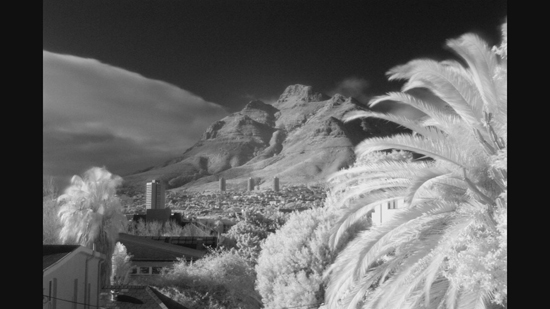
HILOBROW: It’s kind of like a Bowles universe with a Camus point of view.
SINGH: True, though I wanted to get rid of a single point of view and display multiples — like what Durrell did with The Alexandria Quartet. Because how can you have a single point of view of reality? It’s a universal experience. And at the end of the day, everyone’s point of view dissolves against the reality and unreality we exist within.
HILOBROW: The pervasive oceanic imagery in this book also feels like the closing of an evolutionary circle. And at the same time a duet of sorts between that idea of us coming full circle to the primordial soup that spawned us, and a very modern concern of us being inundated and wiped away by rising sea levels. Jennifer’s obsessive connection with water seems like a psychological compensation for this approaching fate.
SINGH: I was definitely trying to make a kind of statement. It’s like with Alvin Toffler, the accelerative thrust has almost reached its pinnacle, within our state of existence in a social context; a lot of what the book deals with are the people operating the social machinery and the people who have fallen off the edges. The machine is taking its toll across the spectrum. It’s reached a point where collapse is visible, inevitable. The characters are all searching for ways to either escape or look beyond this threshold. This return to the primordial is 100 percent what Jennifer instinctively feels. I used to have this joke, when people would talk about getting back to their roots, I was like, “If you really want to get back to your roots why don’t you just drown yourself in the ocean, why stop at 300 years? Go all the way.” And the water thing is like…I’ll probably write another book about water, because I’m just fascinated by the idea that a lot of the water in the world didn’t come from our solar system, it predates it; we’re 71 percent from somewhere else that is far older than our solar system. So we carry within us this sort of outsider mystery of existence, that we’re comprised of physically, but are, in a way, unaware of because it predates the concept of mentality. And Jennifer… you know the High Priestess card in the Tarot? She’s seated before the Ocean of Wisdom behind her; and it’s not water, it’s a sacred medium. Jennifer gradually moves into that medium, where water becomes more a cosmic presence… a presence that can’t exist in the material world.
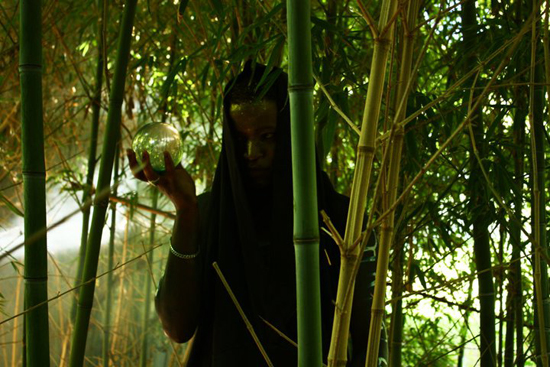
HILOBROW: I do get… in all the characters, this kind of yin-yang configuration of the material and the perceived? Does that feel natural to you?
SINGH: The yin-yang is a very apt way to describe it. Because I also wanted to litter the narrative with mirrors, and doppelgangers. Characters are replicated in certain ways. But in [their] world there is no similarity, it’s purely for the reader/observer to chart these connectivities.
HILOBROW: In light of this and what you said about the perceived collapse of civilization as we define it, I realized that in a strange way Ziq [with his deep mourning for human connection] has a doppelganger in Volker [with his petty disapproval of how young gentry have ruined his neighborhood].
SINGH: It’s nice that you mention it, because it’s true, but I didn’t even pick that up consciously. Because once I started operating my intuitive/counterintuitive methodology, it began providing its own harmonic points. I might not be consciously aware, because the structures intuit themselves (hacking my brain lol) and become sound within one another’s matrix. Also, I’ve worked on this book for almost twenty years, so might have forgotten some of the details and processes I’d woven in. So it’s perfectly accurate to say that Volker’s microcosm would mirror Ziq’s. The other thing with Ziq is — I wanted a very material kind of view on the hopelessness of the existential situation. I mean, he’s not going to start an NGO! He wants to do something, now. What can he do with what he has, he doesn’t have anything. But he finds one thing he can do, which is to open the consciousness of random strangers. The rising tide of nihilistic inevitability consumes him, directing his actions outward. In contrast, Volker’s reflect inwardly…
HILOBROW: A tide with its own metaphorical doppelganger in the waves crashing on the Cape. In terms of that interplay between fantasy and reality, I absolutely think of the imagination in general, story in particular, but really everything from dreams to madness, as being this kind of, intercessor sprit between us and what we can’t understand… an accessory part of the human personality. Do you find that you dwell partially in those realms of fantasy and what-might-be?
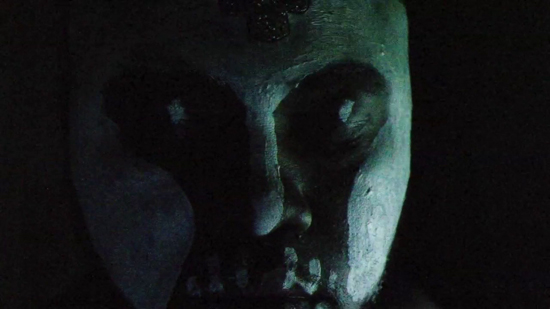
SINGH: The Aborigines have this saying, that everything that you can see, cars, computers, spanners, whatever, they all came from the ground; they all lay underneath the ground, until somebody dreamed them. And these dreamings became physical reality when people apply technical knowledge of the material world to bring these things out of dream, and into physical presence. And there’s this juxtaposition now, because we live in this time where a lot of our dreaming is colonized by outside things, like the superhero movies in the book. Like, Brick is almost being colonized by the character he wrote, which he then played. He created this image, so he’s projected a reality onto himself. Whereas some of the other characters, like Fortunato, they’re desperately trying to get rid of any outside, any material stimulus and go directly to a dream source and bring things back from there. So it’s — it’s not really a clash, it’s a dissonant harmony. Yeah, I’m obsessed about it, but it is literally the foundational state of the reality we find ourselves in. We live within constructed dreamings of one type or another.
HILOBROW: You talked about Brick’s inhabitation of his own image. A more grim manifestation of that sense of people walking through life trailing a raiment of how other people view them is most vividly seen with Trill. The way that Trill never gets more than a neuter pronoun throughout the whole book, no matter who’s viewing them, almost as if this persona has been painted upon them. That’s something very true to a Trans experience, but which a lot of people will find uncomfortable…at first I thought, “Oh, Trill will be ‘it’ from the frivolous Sulette’s perspective, but maybe ‘she’ somewhere else,” but then never is — which actually is reality in terms of where human bigotry is at. But it’s a risky way to express that.
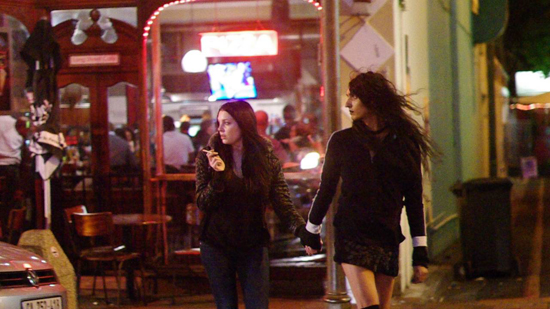
SINGH: It’s risky, but also, I wanted to bring in Brick’s daughter/son, because I wanted to show a character who becomes transgender in the traditional sense of the word, to provide a counterpoint for Trill. Because Trill is really poles apart. With Trill, I wanted to create a character that was genuinely inhuman. It wasn’t this, it wasn’t that, it wasn’t anything recognizable. I saw Trill as someone who had become something else. Something “other.” it wasn’t a gender thing; I mean, of course Trill would reject gender, Trill would reject anything! And, all the other characters, they’re either in the future or the past, or, moving towards the future or the past, but Trill is always in the moment. Trill is not human anymore. The way Brick and others approach it, they always make it about gender, and Trill is not a her or a he, it’s just an “it.” Trill is a changeling, it’s whatever it wants to be, in the moment. And is comfortable moving in any direction. Trill is pure chaos. And also kind of the key. Because nothing would happen in the narrative without Trill…so, in a way, Trill is like the secret, hidden storyteller/protagonist, but one that isn’t telling the story, that is actually just existing within it, but not actually attached to the fact that it has witnessed it [laughs].
HILOBROW: When I’d ask myself who my favorite character was I kept coming back to Trill, and that’s probably why; because Trill is like the equator of the book.
SINGH: Also, in certain strata of South Africa…I find the terminology of “transgender” doesn’t exist as it does in Westernized society. For example, there’s a very strong prison culture in Cape Town, because of gangs, which contain tribal throwbacks from as far afield as Malaysia. And because a lot of the local cultures also have “third genders,” though in a very ancient context — sometimes shamanic. In South Africa, these gender variants are actually accepted within many traditions. They’re not accepted by people that have been conditioned by Christianity/Islam or outdated values — those are the people that this form of existence generally has friction with. So, Trill heralds from ancient subcultures that exist, where a person wouldn’t necessarily define themselves as female or male; they’re completely comfortable with being wholly androgynous. With the gangster culture, there are also ancient tribal throwbacks and preferences for those kinds of people — and it’s a culture I feel Trill would have emerged from. And because this root is partly Malaysian, it introduces a wholly other aspect of Africanized shamanic identity. Trill’s androgyny is neither male nor female; it’s a sacred balance. This character I feel is very endemic to a certain aspect of Africa. People from Cape Town would recognize Trill. Terminology has its place in society, but it’s a double-edged sword, because there is no terminology for someone like Trill, who rejects and dwells outside of society. Trill is what Trill is.
HILOBROW: Speaking of being either inside or outside, or being defined by external people’s perceptions, it’s fascinating to me how radial the perspective in this book is, amongst its characters, particularly their dialogues on what they think they know about the strengths and pathologies of South Africa. And of course it’s a society which for at least 300 years has been refracted into the vantage points of multiple cultures — is it best understood in facets, is there no unified view but only an aggregate one?
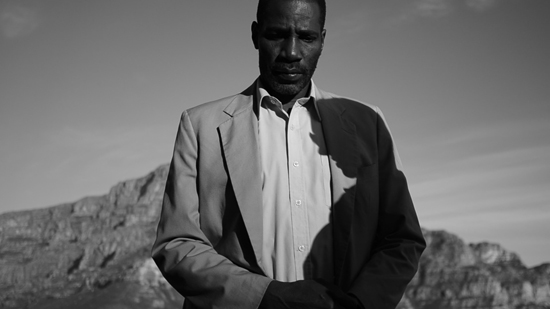
SINGH: There is definitely no unified view, because the problem with Apartheid is that it purposefully divided cultures into separate developmental tangents…what you should understand from my perspective is, basically my entire schooling career occurred under Apartheid. So I was a state-classified “nonwhite” under Apartheid. And the year I left school, was the year Apartheid ended. When you live through Apartheid…and it’s not something I want to discuss in a very open way, because too much has been stigmatized about the subject, simplifying what was essentially a complex, immersive life experience. I feel the only way to discuss Apartheid, and I have discussed it a lot in this book, but in a very subtle way, is to talk about it tangentially — as in the “White Knights” chapter, or through varying POV’s, like a Platonic discussion, because I feel that’s the best way to explore issues from a human experience perspective. The reason why there’s no unified view is that people were kept so separated — in so many different ways. Apartheid was not about Black and White as the West perceives it; it was very much about White and non-White. For example, the Chinese were considered “honorary whites” due to trade agreements. Insanity. So there were these surreal divides. But the thing is, I was in school at the tail end of Apartheid. So what you saw from where I grew up… I grew up in a liberal enclave, in KwaZulu-Natal, which was primarily Zulu, Indian and ex-Rhodesians. (These were not Zimbabweans, these were literally people who grew up in a fictitious state of mind that they believed was this place called Rhodesia. There is a delineation. They were often referred to as “Wenwe’s” — because it was common to hear the phrase “When we were in Rhodesia…”.) Almost everybody was uniformly against Apartheid, in that area, in that province, at that time. The strongest holdouts for Apartheid were in places like the Orange Free State and the Western Cape — those sorts of places. Apartheid was already collapsing. Almost all schools had deliberately disobeyed the “whites-only” policies a good fifteen years before Apartheid collapsed. Though, it was awkward at times for everybody — particularly when we had events like swimming galas at the public swimming pool — which was under government jurisdiction and still “whites only” — though we did get the day off, with a polite apology from the headmaster. Which I was fine with, because I hated competitive sports…
So basically, one of the positives of living under an oppressive regime is that you knew exactly where you stood with people; there was this culture of resistance that was wholly normal. We did lots of things. Some of my family had to leave South Africa and settle in London because of resistance. For example, my dad had a jazz club, his family used to traffic political prisoners to the border to get them away from the police. We lost land and houses in the Group Areas Act [segregation laws which displaced designated non-whites from property that was confiscated], which we were never compensated for. I lost track of how many COSATU, ANC, etc. rallies and riots I witnessed firsthand. I used to go to London, because a lot of my family ended up living in exile there; I would buy tapes that were banned, like NWA, Blowfly, Silver Bullet etc. and I would smuggle them into South Africa, as a teenager, then make pirate copies for kids at school. It was normal. Because everything was like, fuck the system. We would distribute illegal Free Mandela merch, etc. — it was just the culture we grew up in, it was normal.

I was born and raised in KwaZulu-Natal, which is why Ziq and Fortunato are Zulu. Also, their maverick non-conformist stance was a kind of character type I knew well — particularly in Mthandeni [the best friend to whom the book is dedicated]. But there was a lot of violence when I was young in this area. At one point the city I lived in, Pietermaritzburg, which was actually the capital of Natal, became, according to per capita statistics, the most dangerous city in the world. Because of all of the violence in the surrounding townships; people were just dying every day, by necklacing, and police brutality; it was complete chaos. But within the town, you only saw a picturesque surface, seething with volatile undercurrents. People would quietly come to work injured, it was all behind the scenes until it erupted unexpectedly. So, it’s a South African national characteristic to be on edge and employ gallows humour. [Back] then, because of the political violence; later because of the crime — which was a direct result of the Apartheid legacy. So, you grew up with this [feeling] like anything could go wrong at any second. It’s very much a South African mentality. So, I wanted to discuss Apartheid in a tangential way; more the psychological aftereffects. Because it’s so difficult to understand for people who weren’t there. It’s not at all how people imagine it. For some people, like Sulette and Volker, Apartheid’s still going strong, it never went away, I wanted to make that sort of thing clear. They’re not going to go shoot people who are a different race — oh no, nothing like that, we’ll give them jobs, you’re working for us, you’re well looked after. All very intimate. It’s fine! This mentality is a very telling thing.
HILOBROW: That aligns with the sudden damages in the book, how Brick will show up on the set with a broken nose, or Jennifer wakes up with scratches she doesn’t remember getting…
SINGH: That’s South Africa. In South Africa you’re always close to violence. There was this brief period when Apartheid ended in 1994, where literally everything was great, there were so many parties. But the crime statistics went up again a few years later. So, there’s always this danger of something happening. It’s very normal. I wanted to get a bit of that across, that it’s volatile. Especially in Cape Town — I’m on the East Coast at the moment, which is a bit more chilled, the chaos exists in certain areas and if you avoid those you’re fine. But in Cape Town and parts of Joburg it’s a livewire at the moment. Anything could happen.
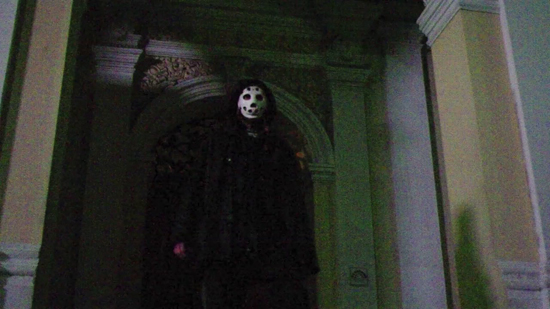
HILOBROW: You also vividly convey not just volatility but how normalized abomination can become…
SINGH: The tendency of the outside world is always to politicize, whereas when you’ve grown up in a structure where the political systems are rendered invalid from the moment you’re born, and are still invalid — I mean, the political situation here is almost as bad as it was during Apartheid, just in a completely different way — you learn to reject politicized views as redundant. I only wanted to show the social impact; the personal, psychological and social impacts. Because I think that is, actually, what is valid and important.
HILOBROW: For all the South African characters in the book, it feels like not just having memories of another era, but like they are survivors of the past.
SINGH: Completely. …I mean, it’s complex, because there are some positives about being under a totalitarian state, because, as I said earlier, you know exactly who’s on your side. You’re not really sure once it’s a so-called “free” place. Anyone could have an agenda. The problem with the South African experience, which is very unique, is that… y’know, we won. It was a quiet, bloodless revolution. And then that collapsed. South Africans’ viewpoint is the darkest gallows humour you can conceive, because there’s no trust in anything; we’ve seen success, and we’ve also seen everything fail. It boils down to the “human problem” — the failings of human nature that are endemic to us all, regardless of creed or colour. Ideologies mean very little to someone like me, who grew up in a culture of resistance that was, in the end, victorious, and then collapsed in on itself to become “more of the same.”
HILOBROW: Your descriptions of the undercurrent of violence gave me more context for the continual theme of criminality in the book — be it ghastly exploitation or liberating forms of piracy, it’s the only governing principle of humanity left.
SINGH: This whole concept is a very conscious decision that I undertook throughout all my work. Like in Taty Went West, the protagonist runs away into a lawless zone. I feel like there’s a saturation of writing and media that focuses on authoritarian narratives. And for me…there’s only so much that can exist within an authoritarian narrative. I’m more interested in what happens once all forms of governance are gone. It’s very much the case in the wild, even though there are natural systems in place — we have become outsiders to these environmental hierarchies. People say, well [then] you’re governed by the predators; but you’re not really as in-danger as you may imagine in the wild; predators are quite focused on what they want to hunt. So, it’s mostly just you and this existential angst. I feel our true natures emerge once we’re in a lawless state — which isn’t even truly lawless, it’s simply a state that lies outside the jurisdiction of human imposition, where it’s just us and the universe. I like to write about people who exist on these fringes; that’s one of my themes, I feel it’s like there’s a wealth of untold experiences from the edges of this mutually agreed fiction we call society…
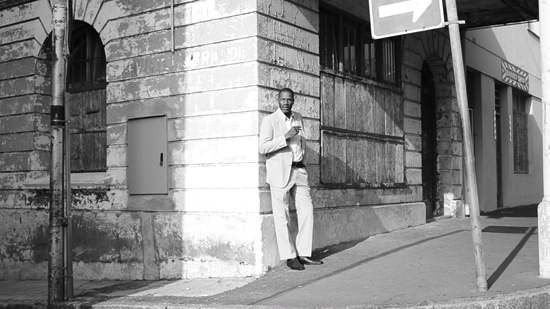
HILOBROW: And some of these characters are pushed to the fringe; others choose it; and others don’t see any other choice they can live with…
SINGH: I think, before all of this stuff that’s happening in the world, we were able to be comfortable in our flight patterns and live in the floating world. But now we’re entering into a completely different harmonic state — which has been instigated purposefully by ourselves, by humanity, by our actions. One of the most striking things about lockdown for me was how the smog all cleared, the animals all came out again. And it was like, okay: you see the cost of your patterns upon reality. What then can we do, when faced with that conundrum? All we can really do is change. But in order to change, there’s the cost. Within the book, the characters that do change, or adapt, find that the change is always apocalyptic — because it is literally the death of a previous existence. I think a lot of people are facing that now. In this weird, narcoleptic, embryonic slow-motion, which we haven’t quite adapted to. And it might not be so bad, or it might be very bad — we don’t know. Another trend I was noticing in speculative fiction is of people incapable of imagining the future. Because we’ve arrived at the future. Where do we go now?
HILOBROW: It staggered my imagination to see in your afterword that you had been working on this book in some form since 2001. That was a different world in so many ways — a different future.
SINGH: That’s what’s so weird about writing in 2001; in 2001 I could glimpse this future nullity that I wanted to communicate, and as I reached the communication of it — the world mirrored it. It very much became… not prophetic, it was more like just catching up to the concept. It’s so weird; even in the ’90s you would have a nostalgia for I guess the ’80s, but now we have a nostalgia for like, last year! It’s like in Alvin Toffler’s book, Future Shock; it’s very much a relic of childhood, but the one thing I got from it was that concept of accelerative thrust where things have accelerated towards a terminal velocity. And for me personally, I’ve experienced that very much in the last couple of decades, where it’s just… 2014 seems like a whole other reality.
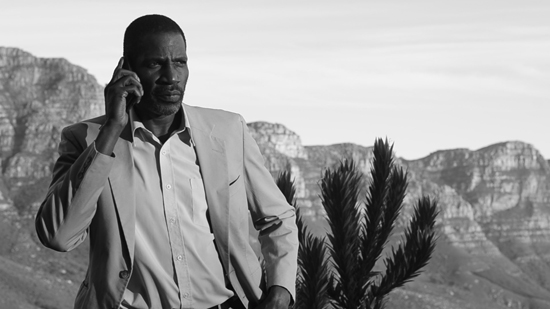
HILOBROW: I’ve experienced that elasticity of time (and time snapping back in some cases) — I began to perceive it in the ’90s, because I realized that to me, in the Clinton era, the ’70s felt like they’d been a week ago, while in 1980 when Reagan took power, the ’70s already felt like 10 years ago though they’d literally been just yesterday. But you’re right, we’ve now reached a kind of Moore’s Law point where last year feels like a decade ago. [laughter]
SINGH: Strange how all of reality is governed by our perception of it, and our mutual perception of it. That alone is quite a terrifying thought.
HILOBROW: At least that holds out the potential of it being somehow moldable by us… as long as we can get all 7 billion of us to agree at any given time!
SINGH: I think that’s the thing — the vision for things must come from the dream. From outside, where it’s always come from. Once we get caught in the feedback loop, we’re doomed. …I think people are kind of breaking out of it in a way; even just locking people up has forced them to confront their reflection.
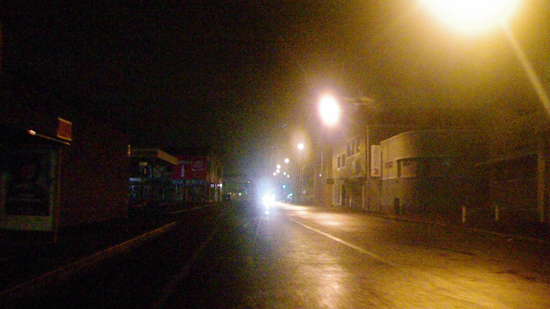
HILOBROW: It’s reminded me to place a certain amount of trust in the material… it’s the material reality of a virus that is transforming our consciousness, and also the materiality of manifested protest — you can impose as much autocratic theory upon people’s minds as you want, but it’s not going to stand up to a resister in Hong Kong throwing a garbage can through your window. That’s a brutal way of putting it, but it shows that we can always have recourse to the physical. It seems that certain human impulses can always reassert themselves in ways we can never anticipate… and not only do these take turns we never expect, but — it seems to me — there are wellsprings of human tendencies which we didn’t know we had. Not just that you can always throw a rock at The Man, but that there are other reserves in us that we discover as circumstances necessitate bringing them out.
SINGH: In a way it’s a positive, because it’s a reawakening to our vestigial selves. That we are the product of our evolution and advancement over X number of years, but we’ve been so caught up in things we have failed to see that. And we are coming to terms with the material proximity of that now. For some people it possibly necessitates an awakening of some kind; but what form that takes, there’s no way to predict.
Further seeing and hearing:
“A track I did as Witchboy with Mthandeni Ziqubu (upon whom Ziq is partially based and the book dedicated to)”
“Track
I did as Witchboy about Jennifer”
“Band I was in while writing — here we are doing an industrial Marlene Dietrich cover (lol), inspired by the film ‘Night Porter’.”
“Video I made for a Witchboy remix — about tripping in Sea Point area — quite visually relevant to new Cape Town eyes.”
MORE POSTS by ADAM McGOVERN: OFF-TOPIC (2019–2025 monthly) | textshow (2018 quarterly) | PANEL ZERO (comics-related Q&As, 2018 monthly) | THIS: (2016–2017 weekly) | PEOPLE YOU MEET IN HELL, a 5-part series about characters in McGovern’s and Paolo Leandri’s comic Nightworld | Two IDORU JONES comics by McGovern and Paolo Leandri | BOWIEOLOGY: Celebrating 50 years of Bowie | ODD ABSURDUM: How Felix invented the 21st century self | KOJAK YOUR ENTHUSIASM: FAWLTY TOWERS | KICK YOUR ENTHUSIASM: JACKIE McGEE | NERD YOUR ENTHUSIASM: JOAN SEMMEL | SWERVE YOUR ENTHUSIASM: INTRO and THE LEON SUITES | FIVE-O YOUR ENTHUSIASM: JULIA | FERB YOUR ENTHUSIASM: KIMBA THE WHITE LION | CARBONA YOUR ENTHUSIASM: WASHINGTON BULLETS | KLAATU YOU: SILENT RUNNING | CONVOY YOUR ENTHUSIASM: QUINTET | TUBE YOUR ENTHUSIASM: HIGHWAY PATROL | #SQUADGOALS: KAMANDI’S FAMILY | QUIRK YOUR ENTHUSIASM: LUCKY NUMBER | CROM YOUR ENTHUSIASM: JIREL OF JOIRY | KERN YOUR ENTHUSIASM: Data 70 | HERC YOUR ENTHUSIASM: “Freedom” | KIRK YOUR ENTHUSIASM: Captain Camelot | KIRB YOUR ENTHUSIASM: Full Fathom Five | A 5-part series on Jack Kirby’s Fourth World mythos | Reviews of Annie Nocenti’s comics Katana, Catwoman, Klarion, and Green Arrow | The curated series FANCHILD | To see all of Adam’s posts, including HiLo Hero items on Lilli Carré, Judy Garland, Wally Wood, and others: CLICK HERE
